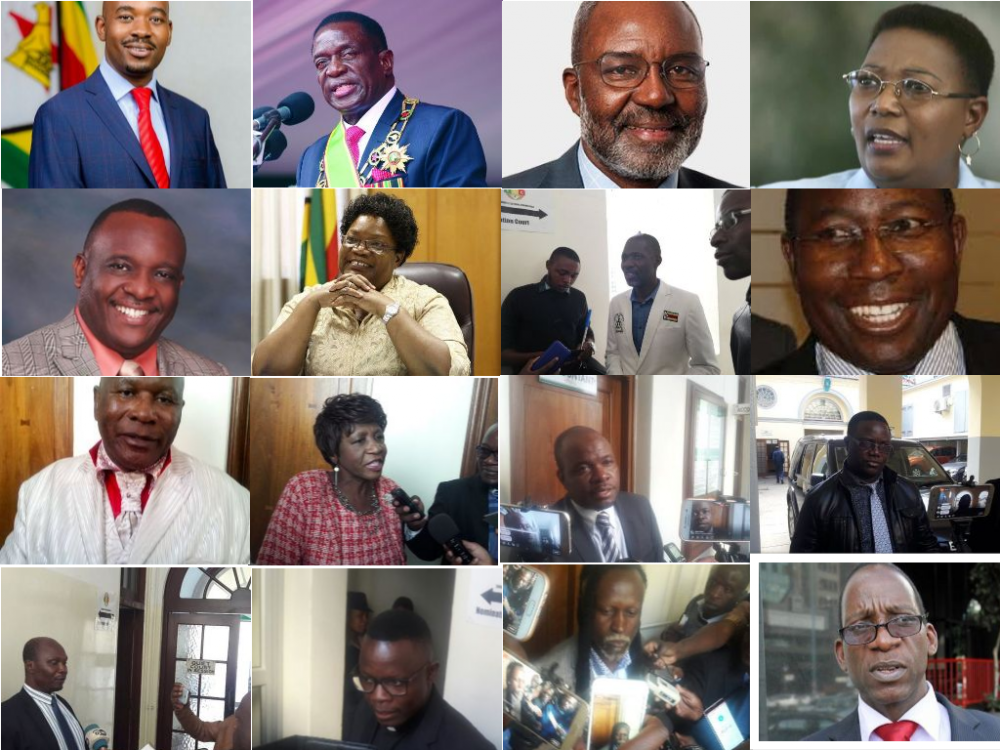It is a constitutional right for each person to choose a representative, in the council, house of assembly, senate and President, with 30 July giving Zimbabweans that opportunity to exercise this fundamental right.
To note, 23 presidential aspirants successfully filed their papers and will take to the race with the intent of leading the country thereby giving the electorate a wide pool to choose from. However, much hype is around ZANU PF candidate President Emmerson MNANGAGWA and MDC Alliance leader, Nelson Chamisa.
President Mnangagwa, both as the country’s leader and preferred ZANU PF presidential candidate has made it a trademark to preach on free, fair, credible and non-violent elections, ,whilst at the same time appealing to Zimbabweans to uphold ethos of peace and unity. He has called on political party leaders to encourage party members to desist from violence and has also encouraged these leaders from using hate speech. This is the notion that all leaders should adopt and preach to their constituencies.
In a survey that was independently carried out by Zimbabwe Peace Project, MDC-T recorded 16 cases of intra party violence out of 19 cases recorded, unlike the norm where ZANU PF had previously been fingered as the main perpetrator. It is also encouraging to note that the general atmosphere of conducting elections under disguised threats or open intimidation against the electorate has gone down. In essence, it should not be a competition for recording the least number of violent cases but it should be a moment of ascertaining and head-stamping the culture of peace that the country generally enjoys.
However, the electorate needs to be reminded that the onus to have non- violent elections lies solely on them. It is never a fist fight between presidential aspirants or other candidates but it will always be between party supporters rallying behind different candidates. It is not the candidates’ houses that will be burnt down, vehicles torched or their bodies incapacitated, but it will be the supporter who faces the harshness of politically afflicted violence.
At any given point, the electorate should always bear in mind that political violence affects the ordinary person and the ramifications always cascade down to the important person in the equation, which is the voter. It is the voters who have the loudest voices to refuse engaging in political violence, as they are the ones who suffer the most, as much as it is up to the electorate to disengage with leaders who incite political violence.
The electorate has the right to refuse to be engaged in violence and should also refuse to be drawn into fights by some supporters who naturally thrive on being violent. Like one leader said, it is always difficult to re-build what was destroyed during election season. In the same sense, election period is a phase that comes and goes.
No form of support or commitment towards any leader should override the peace that everyone should enjoy, before, during and immediately after elections. Peace is attributed to every individual and all are entitled to contribute positively towards participating in a non-violent election, regardless of different political affiliation. At the end of it, the electorate is the beneficiary of peace, it is therefore the electorates’ responsibility to uphold that peace.
As the electorate, let us not be drawn into becoming perpetrators and victims of bloodshed elections which will negatively impact on the lives of the people in the societies we live in. We should take part on preserving the culture of being a united, peaceful and friendly nation we are known to be, and as such, victory will be certain to deserving leaders.




